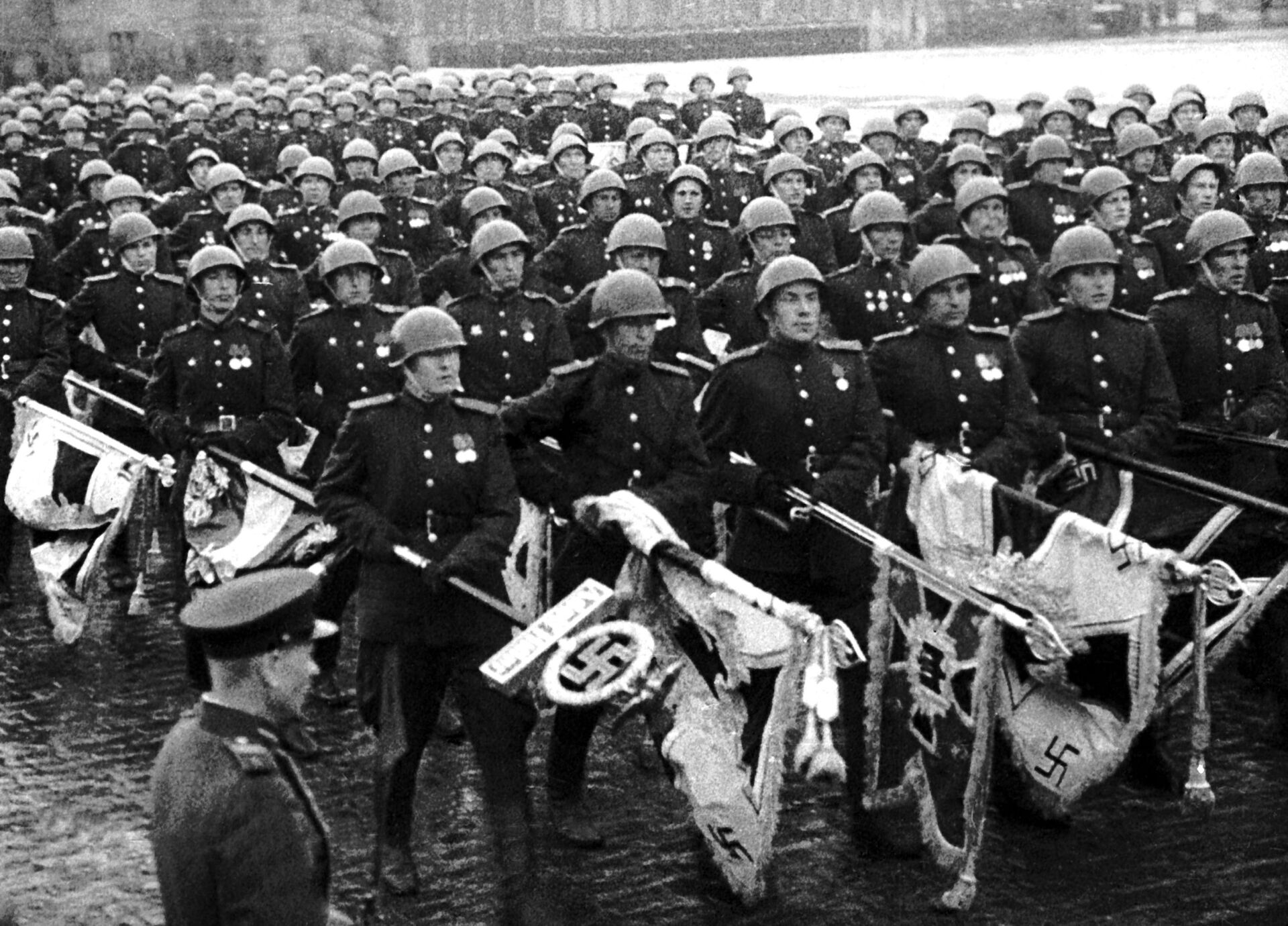NATO's Arming of Ukraine May Evoke Strong Memories of WW2 in Russia, Ex-CIA Analyst Says
14:00 GMT 29.04.2022 (Updated: 18:35 GMT 07.05.2023)
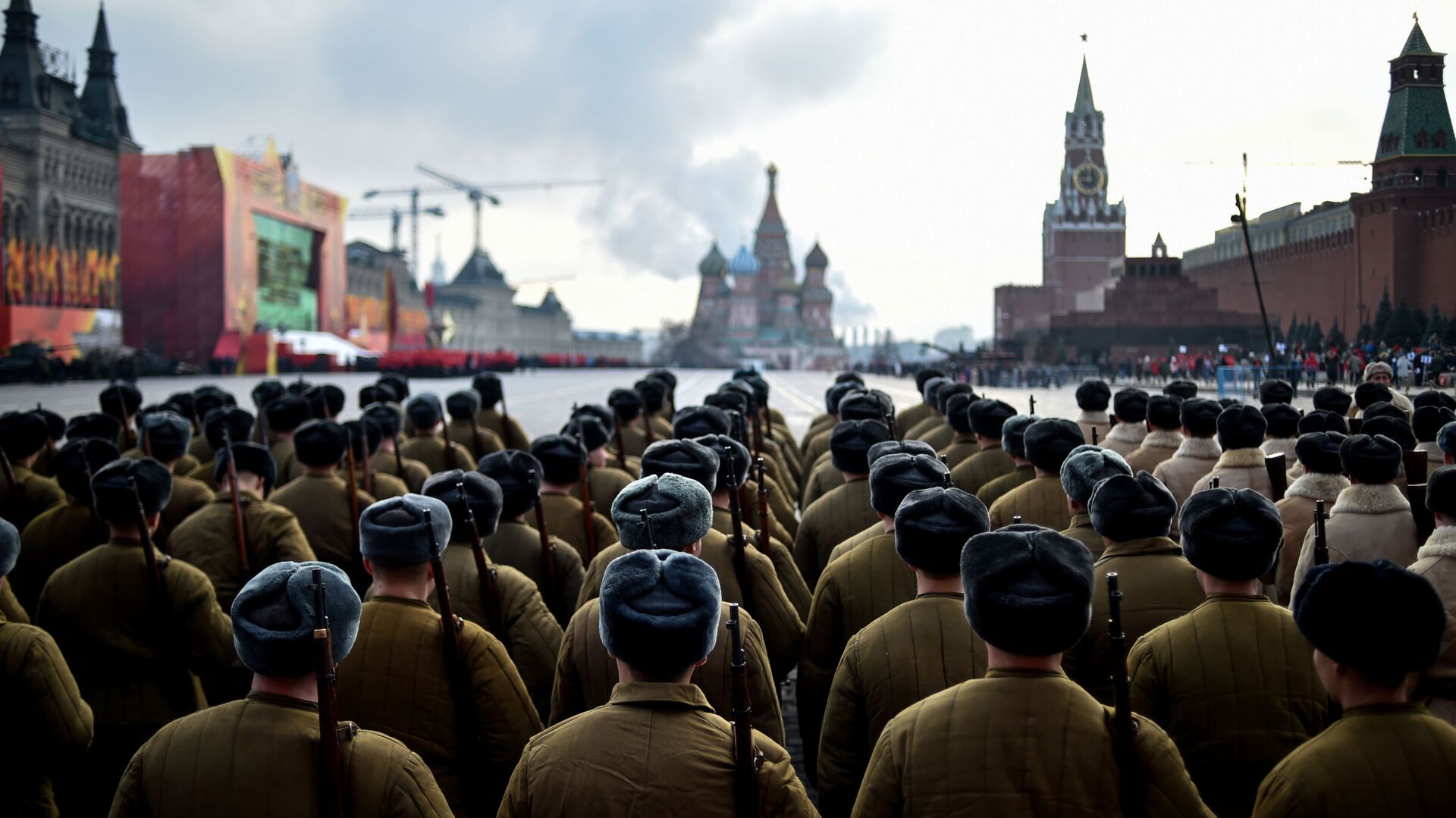
© AFP 2023 / Kirill Kudryavtsev
Subscribe
Pumping heavy weapons into Ukraine is endangering European security, Kremlin spokesman Dmitry Peskov warned on 27 April. Peskov's statement followed NATO's recent pledge to send more arms to Ukraine and UK Foreign Secretary Truss is calling for the delivery of heavy weapons, tanks, and warplanes to the Eastern European country.
"It is catering to the defence industry," says former CIA analyst Larry Johnson. "Too many politicians are compromised by accepting money from the merchants of death. The politicians happily accept the donations and then approve exorbitant spending on weapons systems that are only good for enriching the defence industry."
The US and its NATO allies have stepped up arms deliveries to Ukraine, citing fears that Russia would encircle Ukrainian military forces in the eastern Donbass region over the next four to six weeks, according to The Times.
Over the past two weeks, Washington has begun to ship out $1.2 billion worth of howitzers, around 200,000 artillery rounds, armoured vehicles, counter-battery radars and experimental new armed drones to Ukraine, Politico revealed on 25 March. Canada and France on 22 March unveiled new plans to supply long-range artillery to the Eastern European country, while the UK offered to send tanks to Poland to enable Polish Soviet-era heavy military equipment to be sent to Ukraine.
The German Bundestag on 28 March voted in favour of providing Ukraine with heavy weapons, which came on the heels of Berlin's decision to send tanks to Kiev earlier this week.
In addition to this, US officials are mulling over modernising Kiev's arsenal to NATO-standard weapons, "no matter whether Ukraine joins the alliance," according to Defense One.
Furthermore, despite acknowledging that large caches of weapons are disappearing in the "fog of war" in Ukraine and ending up in the black markets, Western officials insist that a far bigger threat is to not satisfy Kiev's appetite for weapons, according to CNN.
"There is no logic or thought given to this point," remarks the former CIA analyst. "It will only become an issue when one of those missiles shows up on the shoulder of an Islamic terrorist who is shooting down a US aircraft."
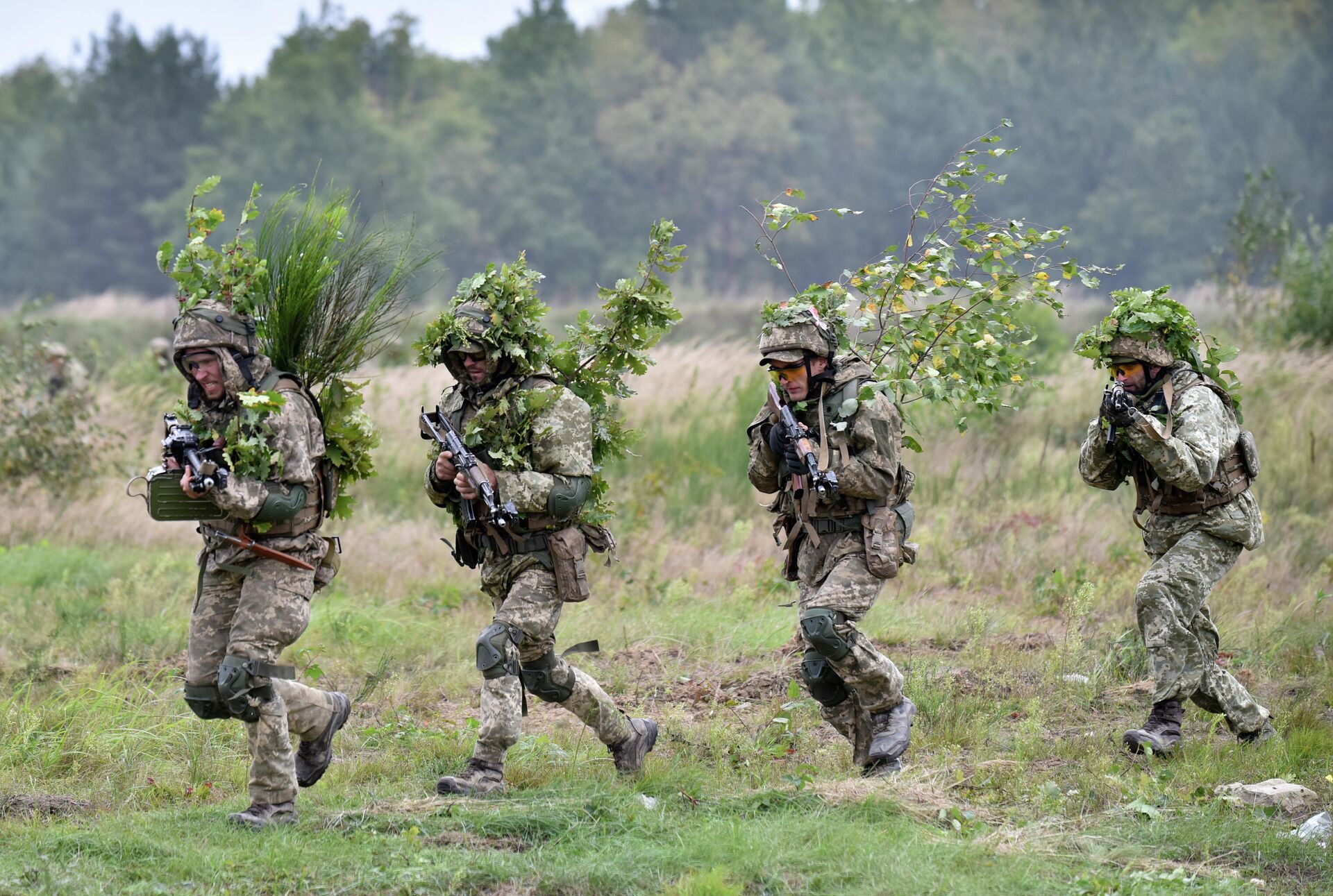
Soldiers take part in an exercise at the Yavoriv military training ground, close to Lvov, Western Ukraine, Friday, Sept 24, 2021. Ukraine, the US, and other NATO countries continue joint military drills in Western Ukraine presenting offensive exercises in town-like surroundings with tanks and other military vehicles involved.
© AP Photo / Pavlo Palamarchuk
US & NATO Have Been Arming & Training Ukraine Since 2014
The US and its NATO allies started flooding Ukraine with weapons and providing military training to the Ukrainian Armed Forces long before Russia's special operation began. The West has funnelled billions of dollars' worth of military assistance to the Eastern European state since 2014.
Between 2014 and 2016, the Obama administration committed over $600 million in security aid to Ukraine, which included Humvee vehicles, counter-mortar radars, night vision devices and medical supplies. In December 2017, then-President Donald Trump approved the sale of $47 million worth of Javelin systems (210 missiles and 37 launchers) to Ukraine. In September 2019, the Trump administration provided a $400 million package of military assistance to the Eastern European country.
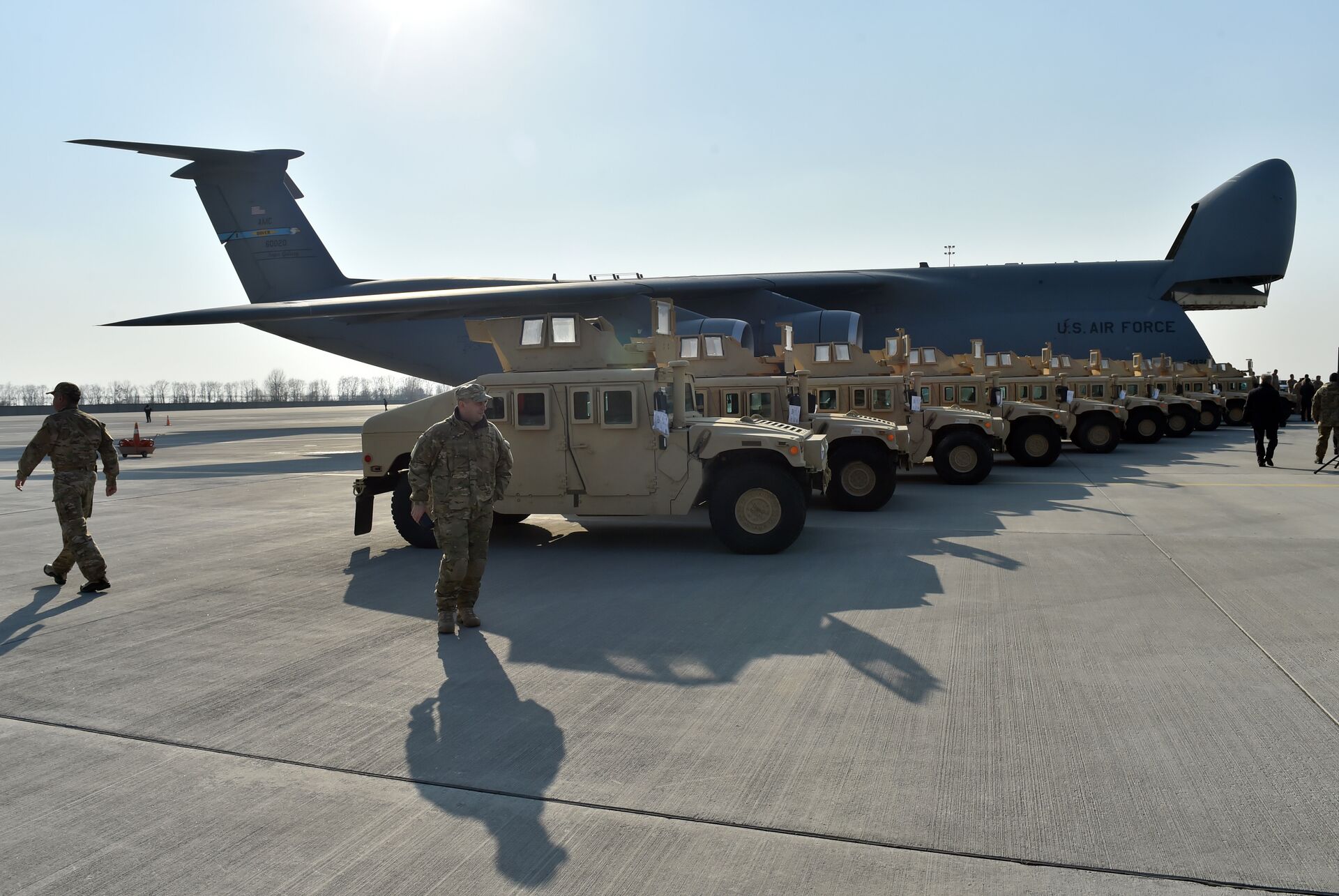
Ukrainian servicemen walk in front of armoured cars at Kiev airport on March 25, 2015 during a welcoming ceremony of the first US plane delivery of non-lethal aid, including 10 Humvee vehicles.
© AFP 2023 / SERGEI SUPINSKY
Calls for pumping more lethal arms into Ukraine were loud even when Moscow handed its proposed security agreements to the US and NATO in mid-December 2021, seeking to bring an end to the US-led military escalation in the region and the transatlantic military bloc's expansion towards Russia.
In early January 2022, US National Security Adviser Jake Sullivan was reportedly urged by a group of American anti-Russia hawks to send more arms to Ukraine ahead of the US-NATO diplomatic meetings on security issues with Russian officials. One of those hawks was retired Gen. Philip Breedlove, a retired four-star general in the US Air Force who served as the commander of US European Command, as well as the 17th Supreme Allied Commander Europe (SACEUR) of NATO Allied Command Operations.
Currently, Breedlove appears to be seeking to further escalate the military standoff with Russia, calling for nothing short of putting NATO boots on the ground in Western Ukraine.
"So what could the West do? Well, right now there are no Russian troops west of the Dnieper River. So why don’t we put NATO troops into western Ukraine to carry out humanitarian missions and to set up a forward arms supply base?" Breedlove told The Times of London on 24 April.
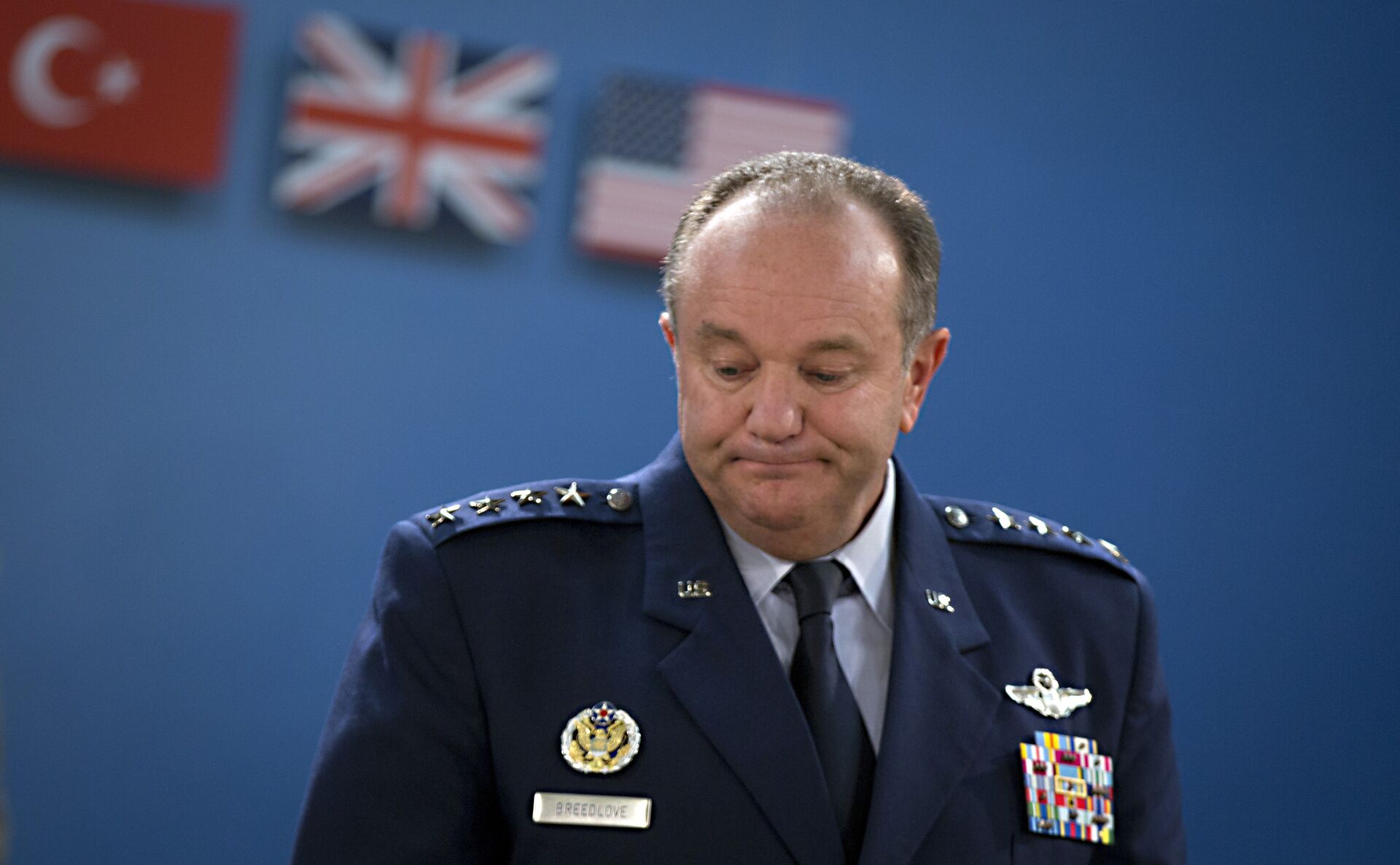
Supreme Allied Commander Europe, U.S. General Philip M. Breedlove.
© AP Photo / Virginia Mayo
Responsible Statecraft, the online magazine of a US think tank, the Quincy Institute for Responsible Statecraft, suggests that Breedlove's warmongering stems from his own vested interests. Besides being a Biden administration adviser on Ukraine, the retired general also works as a consultant for the weapons industry, something that news outlets interviewing him do not disclose, according to the think tank.
The think tank notes that Breedlove currently serves as a "senior advisor to Culpeper National Security Solutions,” a unit of DynCorp an American private military contractor; he is also an “advisor” at Stellar Solutions, a consultancy that offers "expert solutions for Department of Defense customers related to space and missile systems of national protection and security."
"Breedlove may genuinely believe that a direct military confrontation with Russia, and the heightened risk of nuclear war, is necessary, but his downplaying the risks of boots on the ground dovetails nicely with his consulting work for industry interests that stand to benefit from increased US and European defense spending," Responsible Statecraft's Eli Clifton underscores.
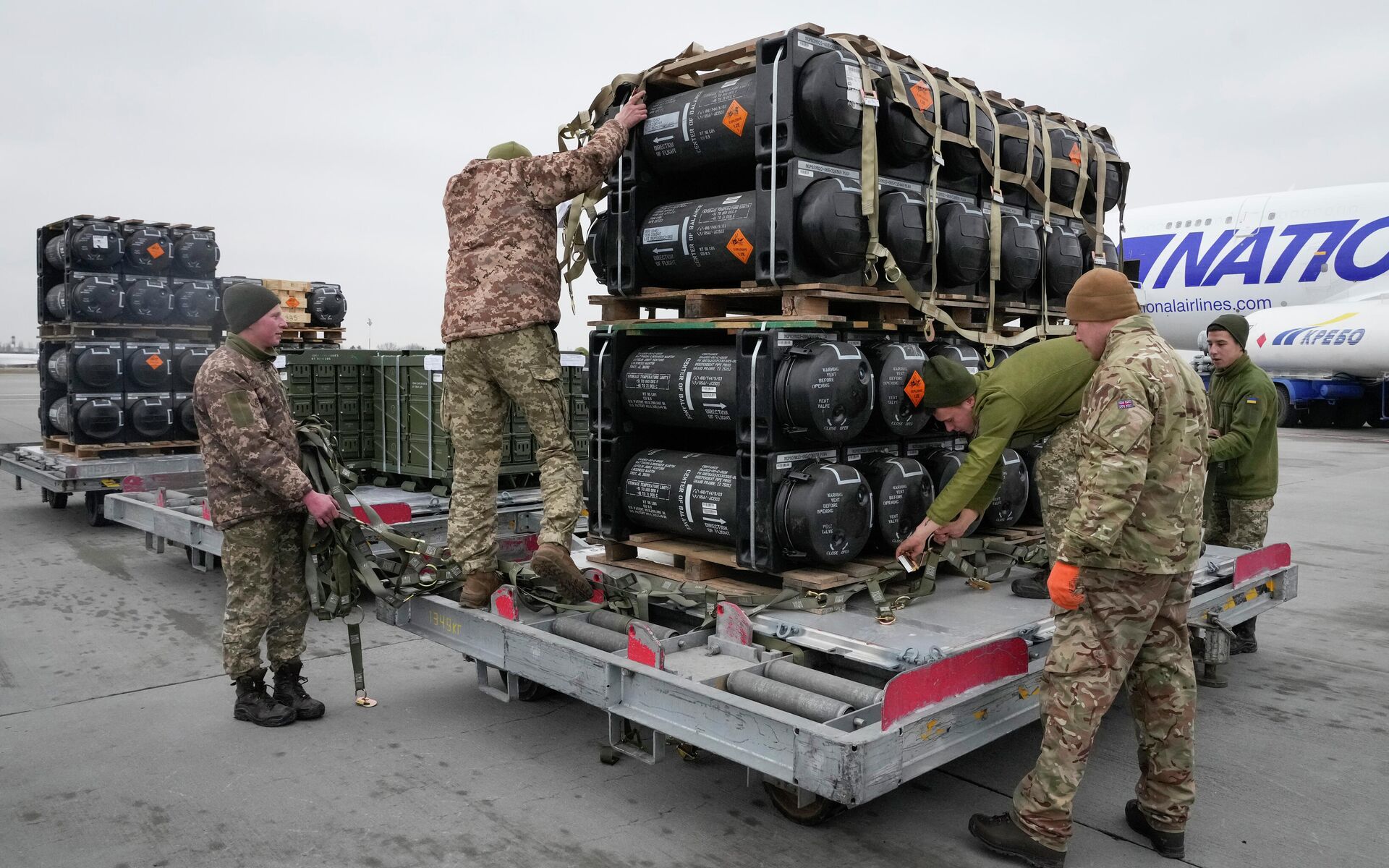
Ukrainian servicemen unpack Javelin anti-tank missiles, delivered as part of the United States of America's security assistance to Ukraine, at the Borispol airport, outside Kiev, Ukraine, Friday, Feb. 11, 2022
© AP Photo / Efrem Lukatsky
NATO "Proxy War" Against Russia
By supplying weapons to Ukraine, NATO is entering into a proxy war with Russia, Russian Foreign Minister Sergey Lavrov said on the "Big Game" programme by Channel One broadcaster on 25 April. On the other hand, the Moscow-Kiev talks are unlikely to succeed if the Ukrainian side continues to be pumped up with weapons from Western countries, the minister highlighted during his meeting with United Nations Secretary-General Antonio Guterres in Moscow on 26 April.
Instead of encouraging negotiations with Moscow, US Defence Secretary Lloyd Austin openly claimed that Washington wants to see Russia considerably "weakened" with NATO foreign leaders pledging to arm Ukraine to this end. Earlier this month, High Representative of the European Union for Foreign Affairs and Security Policy Josep Borrel insisted that the Russo-Ukrainian conflict should be "won on the battlefield."
This situation resembles nothing so much as a vicious circle with the West ignoring and downplaying Russia's concerns over NATO's warmongering and expansion, according to Larry Johnson. The former CIA analyst has noted in his blog that one wouldn't understand the current standoff in Ukraine unless one learns Second World War history.
The West's enthusiastic call for arms against Russia evokes strong WW2 memories among the country's population and is perceived as a hostile threat, according to the analyst. The growth of the influence of neo-Nazis in Ukraine is making matters even worse, he noted.
"If the United States and NATO persist in demonising all things and everyone Russian they are ignoring Russia’s history of fending off foreign invaders," warned Johnson. "I fear the Western leaders are once again indulging the fantasy that they can force the collapse, not only of Vladimir Putin, but all of Russia."

